Items
Search full-text
“Australia Council releases its first Disability Action Plan”
-
“Protesters gather in Lismore (NSW) to oppose proposed cuts to services” In 2004, 300 disabled persons, along with their relatives and carers, gathered in Lismore to protest proposed cuts to adult, training, learning, and support programs, among other services. These were a part of a series of demonstrations against the state government that included hundreds of demonstrators in Newcastle and resulted in the state government reversing its position on modifications to the Post-Schools Options Disability Program.
-
"Soprano Marjorie Lawrence performs in her wheelchair in the 1940s" In the 1940s, Australian soprano Marjorie Lawrence contracted polio and performed in her wheelchair, both nationally and internationally, showing veterans life after disability was possible. Platforms were modied for her wheelchair so she could perform.
-
“Genni Batterham stages a protest at the opening of Bondi Junction railway station 1979, makes film in 1980” When Bondi Junction railway station opened in 1979, Genni Batterham staged a protest about the lack of accessible transportation options for individuals with disabilities. After receiving a multiple sclerosis diagnosis in 1978, Genni became severely disabled very quickly. She did everything in her power to stop the disease's progression and was furious at being "consigned to the world of the disabled." The 1979 Bondi Junction protest was an important moment in the history of the Disability Rights Movement in New South Wales. The Premier, Neville Wran, later said that the experience led him to developing the Disability Taxi Service, the first public transport system designed for people with disability to be launched in Australia. Batterham then made the film ‘Pins and Needles’ (1980) with her husband Kim. Under the direction of Barbara Chobocky and with funding from the Australian Film Commission's Women's Film Fund, the film was screened in five different countries, took home first place at the 1980 Canadian Film Festival, and took home second place at the 1980 New York Film Festival. Genni and Kim would then collaborate on three further films about the phases of her life: Where's the Give and Take? (1981), Artreach (1982), and Riding the Gale (1987).
-
”Hadley, Bree, Paterson, Eddie, & Little, Madeleine (2022) Quick Trust and Slow Time: Relational Innovations in Disability Performing Arts Practice. International Journal of Disability and Social Justice, 2(1), pp. 74-94.” "Despite a range of policies, plans, protocols and funding programmes to support disabled artists and collaborations between mainstream producers and disabled artists, the statistics – at least in our context in Australia – suggest most disability art still occurs outside and alongside an industry that struggles to include these artists. In this article, we draw upon findings from a series of workshops with disabled artists around Australia, conducted as part of the ARC funded Disability in the Performing Arts in Australia: Beyond The Social Model project – known colloquially to its collaborators and participants as ‘The Last Avant Garde’ project (https://lastavantgarde.com.au) – to propose a new approach. We find that while provision of logistical access (ramps, hearing loops, interpreters) and ideological access (stories, characters, discourse and language) is critical, so is methodological access, which embodies disability culture in training, rehearsal and production processes. Disabled artists use crip culture, along with relational space and time to negotiate what happens in disability arts and culture production practices and work through desire, fear, vulnerability and reciprocity to rapidly establish trusting collaborations."
-
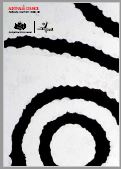 "Australia Council - Annual Report 2005-06" Australia Council Annual Report 2005-2006 - discusses letter from chair of council, letter from CEO, corporate overview, year in review, goals, financial statements, analysis of funding analysis and grants list, including various artistic and community projects - “Stickybricks” – exploring the history of a Sydney Housing Estate where 95% of residents receive aged or disability benefits were traumatised by by murders, suicides, assaults and drug and alcohol-related crimes and they partnered with Big hART to tell their story at the Sydney Festival, “Small Metal Objects” by Back to Back Theatre presented at the Melbourne international arts festival, and the DADAA (WA) regional collaborative “Bridging the Gap” project in Bunbury and publication of “Making the Journey: Arts and disability in Australia”
"Australia Council - Annual Report 2005-06" Australia Council Annual Report 2005-2006 - discusses letter from chair of council, letter from CEO, corporate overview, year in review, goals, financial statements, analysis of funding analysis and grants list, including various artistic and community projects - “Stickybricks” – exploring the history of a Sydney Housing Estate where 95% of residents receive aged or disability benefits were traumatised by by murders, suicides, assaults and drug and alcohol-related crimes and they partnered with Big hART to tell their story at the Sydney Festival, “Small Metal Objects” by Back to Back Theatre presented at the Melbourne international arts festival, and the DADAA (WA) regional collaborative “Bridging the Gap” project in Bunbury and publication of “Making the Journey: Arts and disability in Australia” -
"Australia Council commissions a research study on people with disabilities' participation in arts activities" Australia Council commissioned a research study on the problems faced by people with disabilities attempting to participate in art activities (Australia Council Annual reports 1979/1980 and 1980/1981).
-
“Australian Caption Centre opened in 1982” The Australian Caption Centre was opened 13 September, 1982. A tour took place at the Australian Caption Centre in Sydney in the 1990s; the video (now available on YouTube) explains how the Centre worked. In 2005, the Centre sold its commercial operations including the captioning services to Red Bee Media and formed Media Access Australia.
-
"Carriageworks (2015) NSW Arts and Disability Partnership Launched at Carriageworks Including $100,000 Support for Two Major New Works. Carriageworks, 30 January 2015" Reads, in part "Sydney, Australia: The NSW Minister for Disability Services, Minister John Ajaka MLC, today launched an extension of the NSW Arts & Disability Partnership, announcing funding of $475,000 for 2015 to support four programs that promote social inclusion through the arts and disability sector. The Partnership includes $100,000 support for Carriageworks to commission two major new works developed by artists with disability in collaboration with NSW arts companies and artists."
-
“Sydney Film Festival launches Screenability program in 2017” Sydney Film Festival launched its Screenability program in 2017. The international program was intended to offer a platform for screen practitioners with disability. Sofya Gollan was Screenability’s inaugural programmer and remained in the role until 2021.
-
"Arts Access Victoria established in 1973 and provides valuable resources and conferences throughout the decades" In 1973, Judy Morton successfully applied for funding to start a 6-month pilot program and Arts Access Victoria was established the following year. However, due to lack of government funding and despite public appeal, programs were suspended in 1977. Fortunately, operation resumed in 1979 and AAV was formally constituted with a small School Commission fund as Arts Access Society Inc. Arts Access Victoria had both organisational and financial growth in the mid to late 1980s. This led to a diversification of arts projects and the beginning of long-term artistic programs which remain as the core programs of AAV. Arts workshops also began in regional Victoria during this time. In 1988, Arts Access was approached to run a national conference focusing on the arts and disability. Two years later, they convened P-art-ICIPATE '90 and subsequently published ‘P-art-ICIPATE '90: a conference report’. They also published ‘Inner Words Outer Spaces’, edited by Bev Roberts (1995), ‘Arts Alive: An Information Leaflet about the Ways the Arts Can Work for Older People’ (1995), ‘Accessible Theatresports’ (1996), and Bev Roberts's ‘Work Guide: How to Establish an Artist in Community Project’ (1996). In 1998, Arts Access (Victoria) assumed responsibility for its own financial management and administration. In 1999, Arts Access Victoria presented Verve!, a national symposium on arts and disability.
- Australian Elizabethan Theatre Trust
-
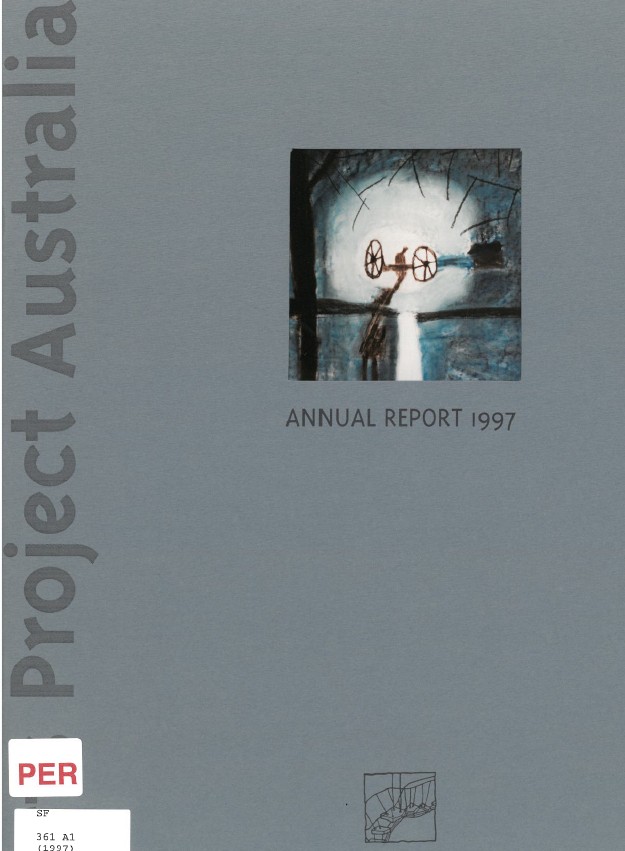 "Arts Project Australia - Annual Report 1997" Arts Project Australia - Annual Report 1997 - Management Committee, Aims and Objectives, President's Report, Director's Report, Studio Workshop Program, Exhibitions, Financial Statements Balance Sheet, Profit and Loss Statement, Income and Expenditure Summary, Statement of Cash Flows, Notes to Statement of Cash Flows, Notes to and Forming Part of the Financial Accounts, Statement to Members, Audit Statement to Members - reads, in part "Arts Project Australia, had its beginnings in 1974. But it was not until 1984 that our first studio workshop was establish.ed, with the aid of a grant from the Commonwealth Schools Commission. Since 1984 the studio workshop programme has physically developed in fairly well-defined cycles of five to six years. Up until 1986 the programme operated in hard to find halls tucked in behind houses or a convent building."
"Arts Project Australia - Annual Report 1997" Arts Project Australia - Annual Report 1997 - Management Committee, Aims and Objectives, President's Report, Director's Report, Studio Workshop Program, Exhibitions, Financial Statements Balance Sheet, Profit and Loss Statement, Income and Expenditure Summary, Statement of Cash Flows, Notes to Statement of Cash Flows, Notes to and Forming Part of the Financial Accounts, Statement to Members, Audit Statement to Members - reads, in part "Arts Project Australia, had its beginnings in 1974. But it was not until 1984 that our first studio workshop was establish.ed, with the aid of a grant from the Commonwealth Schools Commission. Since 1984 the studio workshop programme has physically developed in fairly well-defined cycles of five to six years. Up until 1986 the programme operated in hard to find halls tucked in behind houses or a convent building." -
“The Australian Government announced a National Autism Strategy in 2022” In 2022, a National Autism Strategy was announced by the Australian Government. The Department of Social Services note that the strategy developed out of a “comprehensive co-design process.” Its objectives relate to social inclusion; economic inclusion; diagnosis, services and supports; and health and mental health. The strategy puts forth a “vision for a safe and inclusive society for all Autistic people. One where we support and empower Autistic people to thrive, in all aspects of life.”
- Valerio Ciccone
- Chris Mason
-
"The first Arts Activated conference takes place" Accessible Arts NSW started biennial Arts Activated conferences in 2007 "to inform, connect and activate people and organisations involved with Australia’s arts and disability sector" https://aarts.net.au/arts-activate/
-
“Fusion Theatre established in 1997” Fusion Theatre (Victoria) was established in 1997. "Since its beginnings as a drama group, Fusion has expanded into two main performance ensembles that make up the company. The ensemble members collaborate with professional theatre makers, guest performing artists and designers, to devise theatre performances based on the stories, imagination and ideas of all participants." Fusion Theatre’s ongoing association with Deakin University's Faculty of Arts and Education means that each year, Deakin’s theatre and drama students work with Fusion as artists, performers, assistants, and theatre technicians. Some alumni continue to be involved with the company.
-
“Deaf film ‘A Silent Agreement’ is released in 2017” The Deaf film ‘A Silent Agreement’ was released in 2017 (written and directed by Davo Hardy). This romantic drama features a profoundly Deaf human rights activist and his filmmaker boyfriend with a speech impediment. It is said to be the first Australian film to feature Auslan as the main dialogue. Some scenes are entirely in Auslan. Screen Australia calls it the “first Australian film to feature Auslan.”
-
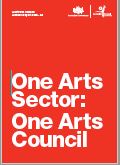 "Australia Council - Annual Report 2008-09" Australia Council Annual Report 2008-09 - discusses letter from chairman, year in review, from the CEO, How we achieved our outcomes, About the Australia Council, Governance, Organisation, Accountability, Workplace and Financial statements but no longer listing grants of organisations or individuals however discusses the DADAA WA radio play “The Proper Shoes” - a series of stories written by young women with a disability, was first broadcast nationally on ABC Radio and then invited to tour the play as part of the TRASNA Festival of Inclusive Theatre.
"Australia Council - Annual Report 2008-09" Australia Council Annual Report 2008-09 - discusses letter from chairman, year in review, from the CEO, How we achieved our outcomes, About the Australia Council, Governance, Organisation, Accountability, Workplace and Financial statements but no longer listing grants of organisations or individuals however discusses the DADAA WA radio play “The Proper Shoes” - a series of stories written by young women with a disability, was first broadcast nationally on ABC Radio and then invited to tour the play as part of the TRASNA Festival of Inclusive Theatre. - Christopher Mason
-
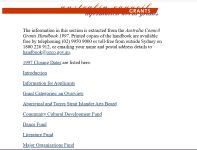 “Australia Council - Grants, captured 1997” Australia Council (Creative Australia) grants captured December 1997. Website reads “extracted from the Australia Council Grants Handbook 1997” and includes Grant Categories: an Overview, Aboriginal and Torres Strait Islander Arts Board, Community Cultural Development Fund, Dance Fund, Literature Fund, Major Organisations Fund, Music Fund, New Media Arts Fund, Theatre Fund, Visual Arts/Craft Fund, Awards
“Australia Council - Grants, captured 1997” Australia Council (Creative Australia) grants captured December 1997. Website reads “extracted from the Australia Council Grants Handbook 1997” and includes Grant Categories: an Overview, Aboriginal and Torres Strait Islander Arts Board, Community Cultural Development Fund, Dance Fund, Literature Fund, Major Organisations Fund, Music Fund, New Media Arts Fund, Theatre Fund, Visual Arts/Craft Fund, Awards -
“Australia Council start development of Code of Conduct for Access in The Arts” Australia Council started development of Code of Conduct for Access in The Arts. Consultation took place in 2021-2022.
-
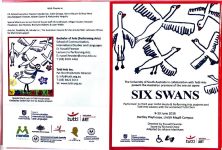 "Tutti Arts - Six Swans - Program" Tutti Arts ‘Six Swans’ 2015 Program – reads, in part “Six Swans is the first collaboration of its kind and we are thrilled to be working together on this production. Tutti is one of Australia's leading disability arts organisations- working to promote the work of disabled artists to the world, and UniSA is at the forefront of providing flexible, compelling industry-relevant learning experiences for students. Productions of this nature are immensely valuable because they break down barriers, enrich the lives of all participants, and create opportunities for graduating and emerging artists involved.”
"Tutti Arts - Six Swans - Program" Tutti Arts ‘Six Swans’ 2015 Program – reads, in part “Six Swans is the first collaboration of its kind and we are thrilled to be working together on this production. Tutti is one of Australia's leading disability arts organisations- working to promote the work of disabled artists to the world, and UniSA is at the forefront of providing flexible, compelling industry-relevant learning experiences for students. Productions of this nature are immensely valuable because they break down barriers, enrich the lives of all participants, and create opportunities for graduating and emerging artists involved.” - Bruce Gladwin
- Patrick Francis
